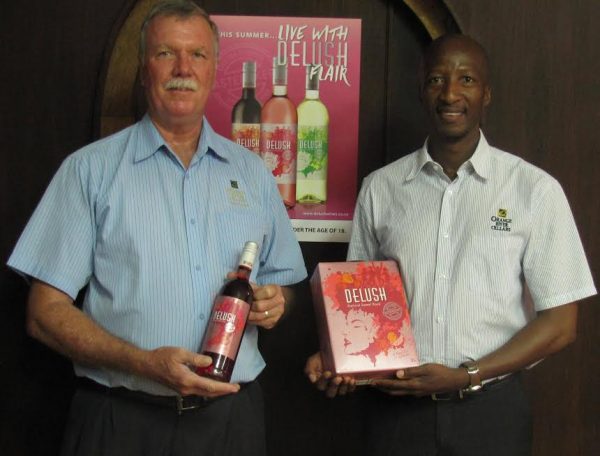According to statistics from the International Organisation of Vine and Wine, South Africa is the seventh biggest wine making country in the world.
Home to more than 95,000 hectares of specifically purposed grape vines, the country produces roughly 10.8 million hectolitres (1.08 trillion litres) per year, an amount 10 times greater than the production capacity of any other nation on the African continent.
Whilst the majority of this is exported, with 107 million litres having been shipped to the UK alone in 2016, there is reason for optimism in the domestic consumer market, with wine on the up in South Africa.
The 450 million litres that were consumed across South Africa last year is a distinct rise from the 425 million litres recorded in 2015, largely driven by the rising interest of younger demographics – an interest that local producer Orange River Cellars has successfully peaked.
“The Delush brand that we recently launched, one of our many meticulously marketed brands, has been specifically developed for wine drinkers between the ages of 18 and 24 with its sweeter taste and lower alcohol content,” explains Charl du Plessis, the Company’s Chief Executive.
“We feel that we’ve made a crucial step in developing a product that the younger consumer can identify with in Africa, reflected in our forecasts that suggest we can expect to do five million litres of Delush wines alone in the next financial year.”
Understanding opportunity
With Delush standing as just one of a number of brands that have been specifically tailored to a host of different demographics, Orange River Cellars currently produces around 55 million litres of wine and up to 10 million litres of concentrate across its five wine cellars per year.
In the 53 years since its inception, the Company has grown to become a major player positioned at the forefront of South Africa’s expansive wine industry, a rise that has been facilitated by the firm’s willingness to adapt.
Du Plessis explains: “In the past few years we’ve become a lot more consumer orientated. We used to be a bulk orientated Company producing wine for distillation purposes. However, we have had to change our approach as we didn’t have a captive market in the wake of deregulation.”
The firm has faced a significant number of structural and cultivation-centric challenges in face of this, most of which have been overcome by its savvy marketing strategy and flexible attitude.
“In my eyes, our commitment to market research and productive innovation have been key to our success to date,” says du Plessis. “We’ve continually explored focus group and brand development exercises to help us better tailor our products to the demands of the consumer, finding out what it should look like, taste like and be like.
“I think we started a bit too late and it has been tough catching up. We’ve got competition in the market that has been established for some time, but we’re definitely making a name for ourselves.”
This is particularly evident when considering the Company’s recent diversification, not only through the Delush brand that is growing at around seven-10 percent each month, but also in its recent purchase of a raisin processor.
“We have made the transition into being a food and beverage business,” du Plessis adds.
Broadening horizons
The business is in fact exploring a range of new opportunities, from the consideration of launching bottling facilities in Zimbabwe and Johannesburg, to refining its supply chain management in the aim of better dealing with the growing complexities that have come with its expanding operational scale.
And while such diversification can be considered crucial to the continual success of Orange River Cellars, so too is its broad outlook when approaching new markets.
Currently the firm exports to Nigeria, Kenya, Ghana, Malawi, Tanzania, Namibia, Angola, Botswana, Zimbabwe, Mozambique, New Zealand, China, Europe, and other regions, a portfolio that is testament to the Company’s ability to be flexible where necessary.
“I think the key things for us when moving into new markets is aligning our products’ value proposition with local expectations,” explains du Plessis.
“In the main, we’re not delivering boutique wines. We know what we’re good at and that’s offering big volumes under strong consumer brands with high turnover.
“From an infrastructure perspective, we know we’re in a position where we are able to deliver good quality products on a consistent basis in South Africa. The trick now, is establishing our brands across the rest of the continent.”
The opportunity to execute this is particularly prevalent in African countries situated in the southern hemisphere – opportunities that Orange River Cellars readily looks to capitalise on through the pursuit of local partnerships and joint ventures in those countries that it exports to.
more on africaoutlookmag.com




